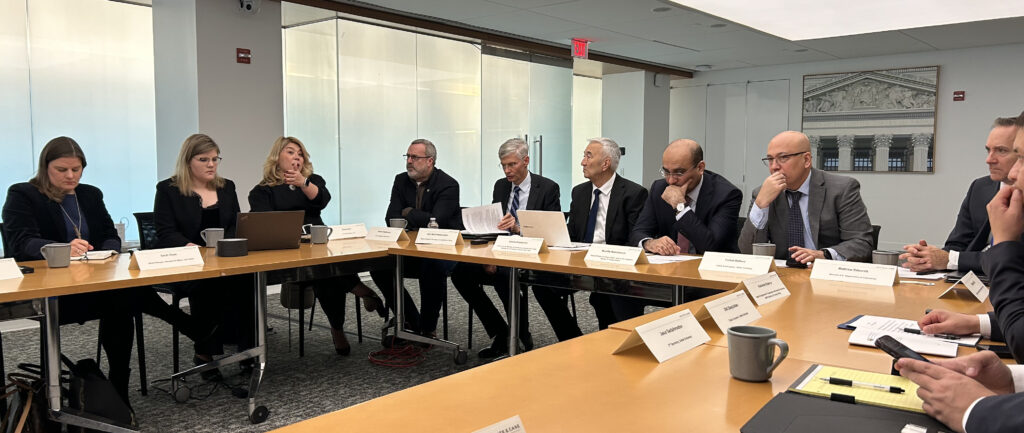In a hopeful sign for Minnesota farmers, the U.S. and Japan agreed to a trade pact this week that reduces tariffs on agriculture products, including soybean meal, beef and pork.
The deal was announced by President Donald Trump and Japanese Prime Minister Shinizo Abe during the United Nations General Assembly in New York City. The agreement goes into effect in January and covers about $7 billion in U.S. products. Once this agreement is implemented in January 2020, over 90 percent of U.S. food and agricultural products imported into Japan will either be duty free or receive preferential tariff access.
Both the Minnesota Soybean Research & Promotion Council (MSR&PC) and the Minnesota Soybean Growers Association (MSGA) have been proactive in calling for greater market access to Japan.
“Opening up the meat market in that country has significant impacts on farmers and soybean growers, because utilization of soy is big part of growing hogs,” said MSR&PC Director Patrick O’Leary. “For us as soybean growers representing a checkoff organization, the potential for more open export markets and reducing tariffs is a big impact.”
Japan has been a longtime purchaser of U.S. soybeans. In 2017, the country imported more than $1 billion worth of whole soybeans and soybean meal combined. Japan imports many commodities from the U.S. (namely soybeans, corn, beef, pork and wheat) and is the third largest global market for United States agriculture, importing 13 billion in 2018. U.S.’s beef and pork products account for $3.7 billion in exports to Japan.

The country’s food self-sufficiency ratio is also the lowest of any developed country, partly due to aging population and limited geographical space for agriculture (Japan is roughly the size of Montana and has a population of about 126 million).
In late 2017, O’Leary, Council chair at the time, and Director Gene Stoel traveled to Japan and attended seminars, met with customers, witnessed a grocery store tasting, visited a pork and beef promotional event and toured Japan’s largest food service company.
“We saw first hand the increase of meat in Japanese food culture,” O’Leary said. “In turn, we’re observing an added value in terms of how important this export market is to U.S. farmers.”
In December 2018, MSR&PC CEO Tom Slunecka testified before the U.S. International Trade Commission that a long standing internal mandate in Japan regarding soybeans has created a non-tariff barrier to trade.
“Japanese buyers largely procure soybeans from America’s Gulf of Mexico ports due to outdated and misleading technical measurements that state crude protein is the ultimate quality measure for soybeans,” Slunecka said. “In reality, crude protein measurements are just that: crude.”

In March 2018, MSGA President Jamie Beyer visited the Japanese Embassy in Washington, D.C. MSGA submitted comments to the World Trade Organization to remove the non-tariff barrier on a subject document that was submitted by the Japanese government. By removing the non-tariff barrier, the resultant shipments of U.S. commodity soybeans from Pacific Northwest (PNW) ports to Japan would increase the prices received by farmers in Minnesota (and the Dakotas) for their soybeans.
Though a larger agreement will ultimately be needed, this first deal is a positive step for agriculture, says MSR&PC Director of Market Development Kim Nill.
“We’re pleased to have this deal will allow greater market access to Japan,” Nill said. “Japan has been an important trading partner for more than a half-century.”





